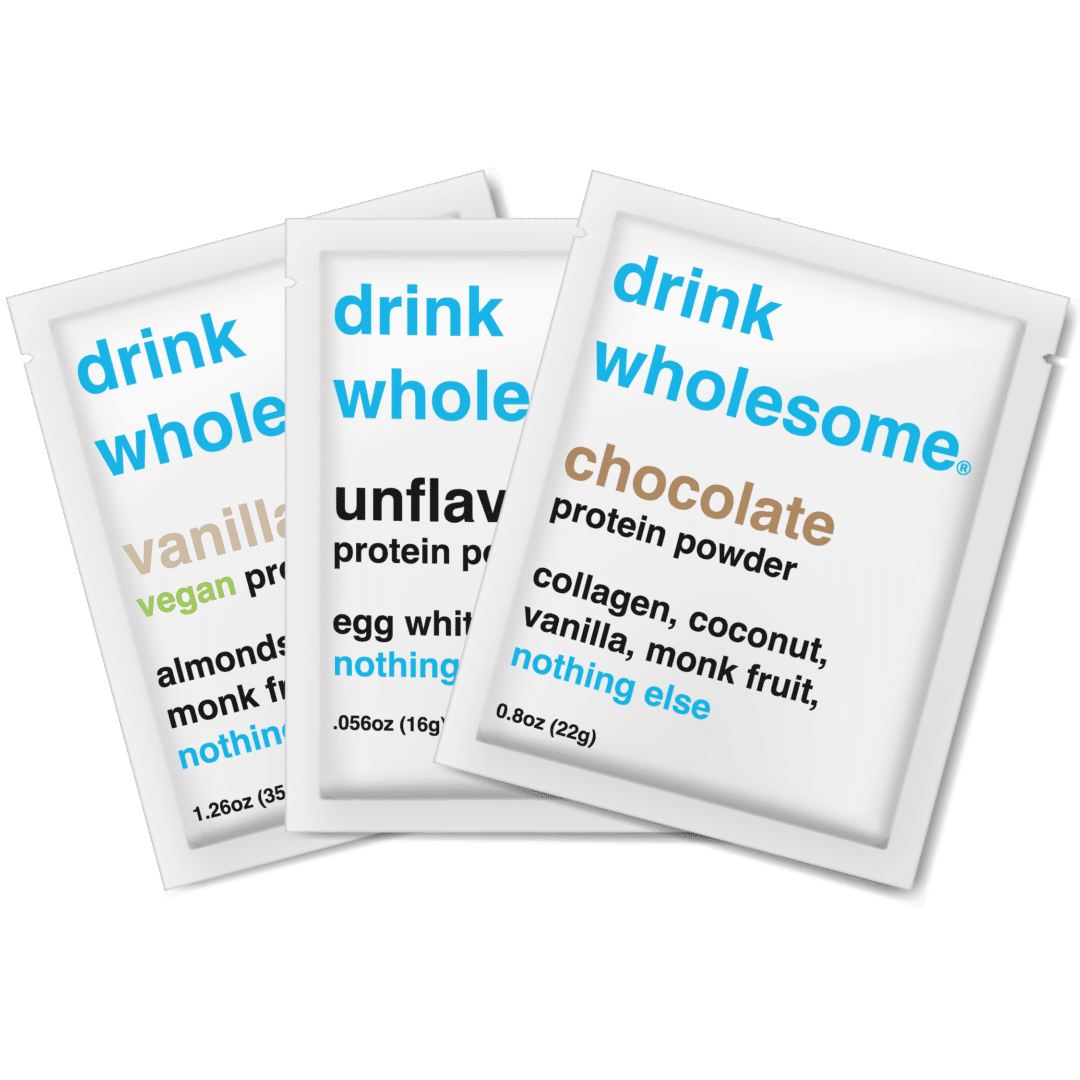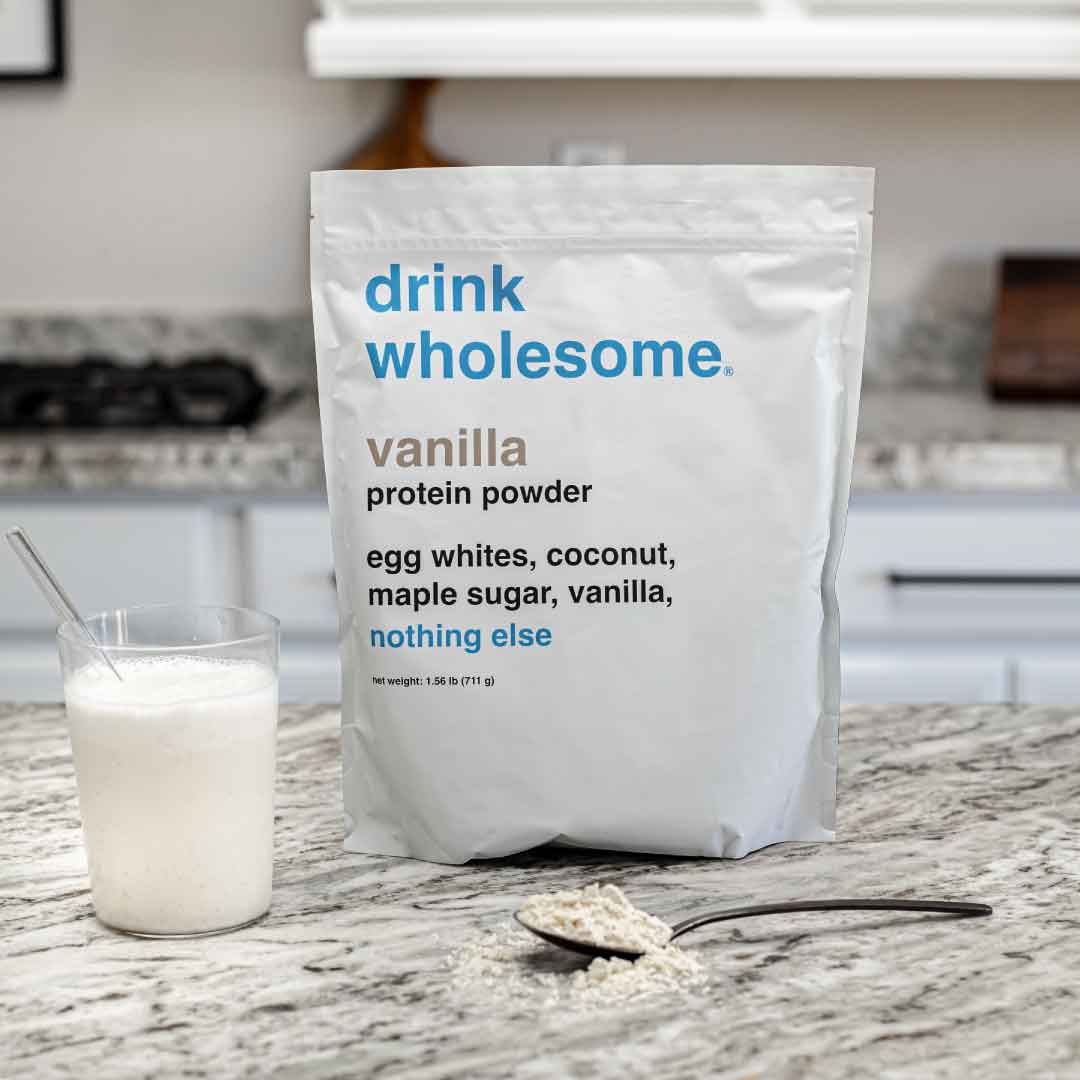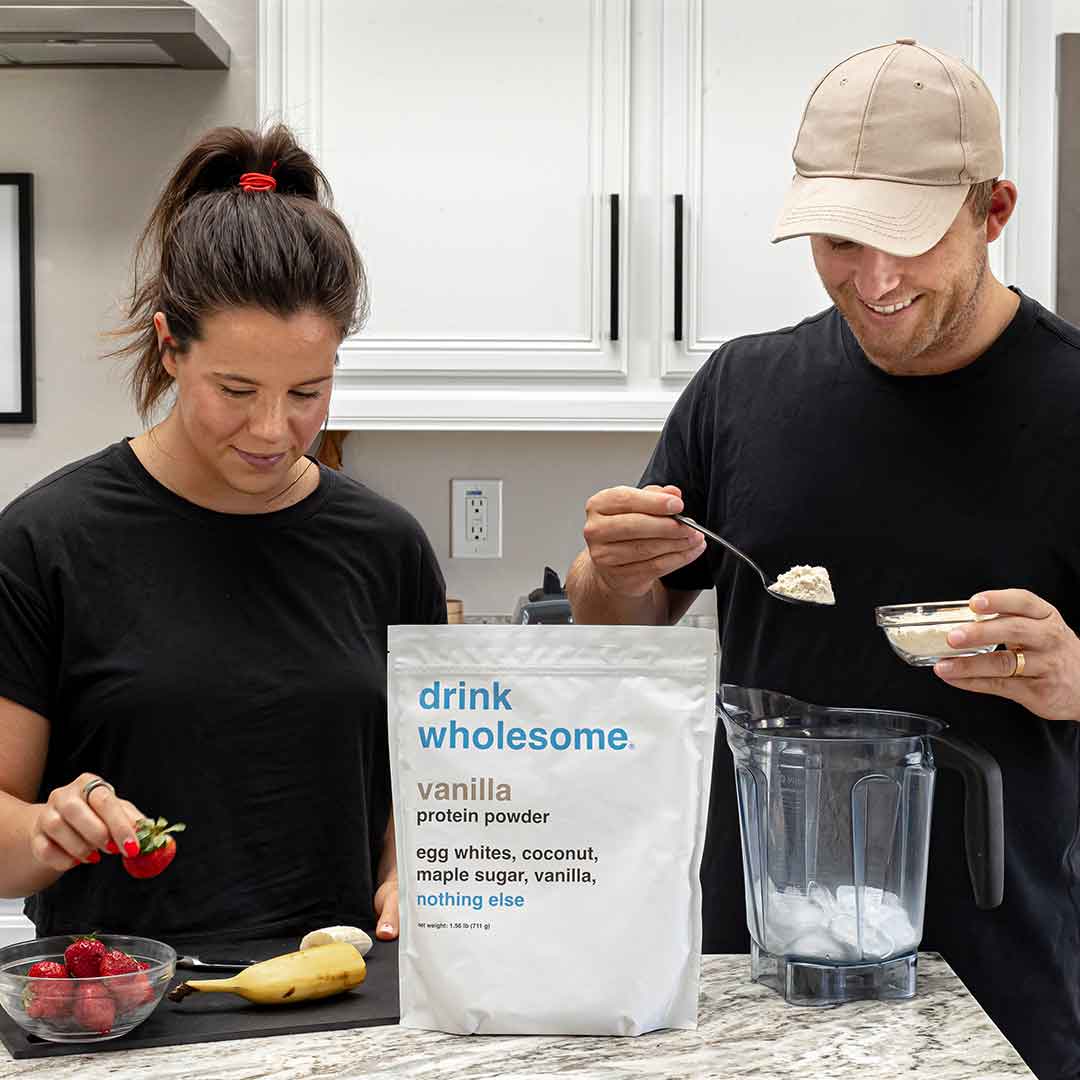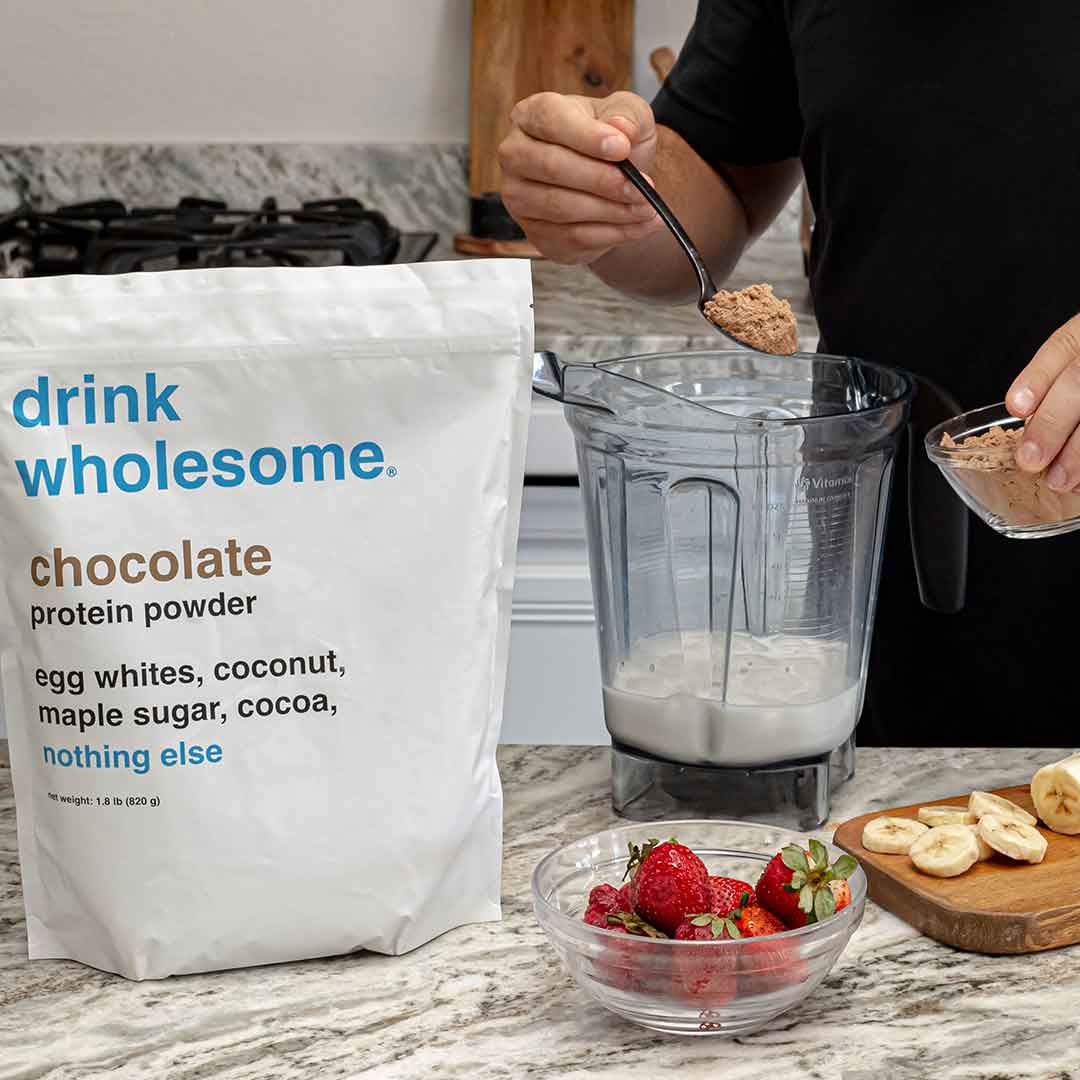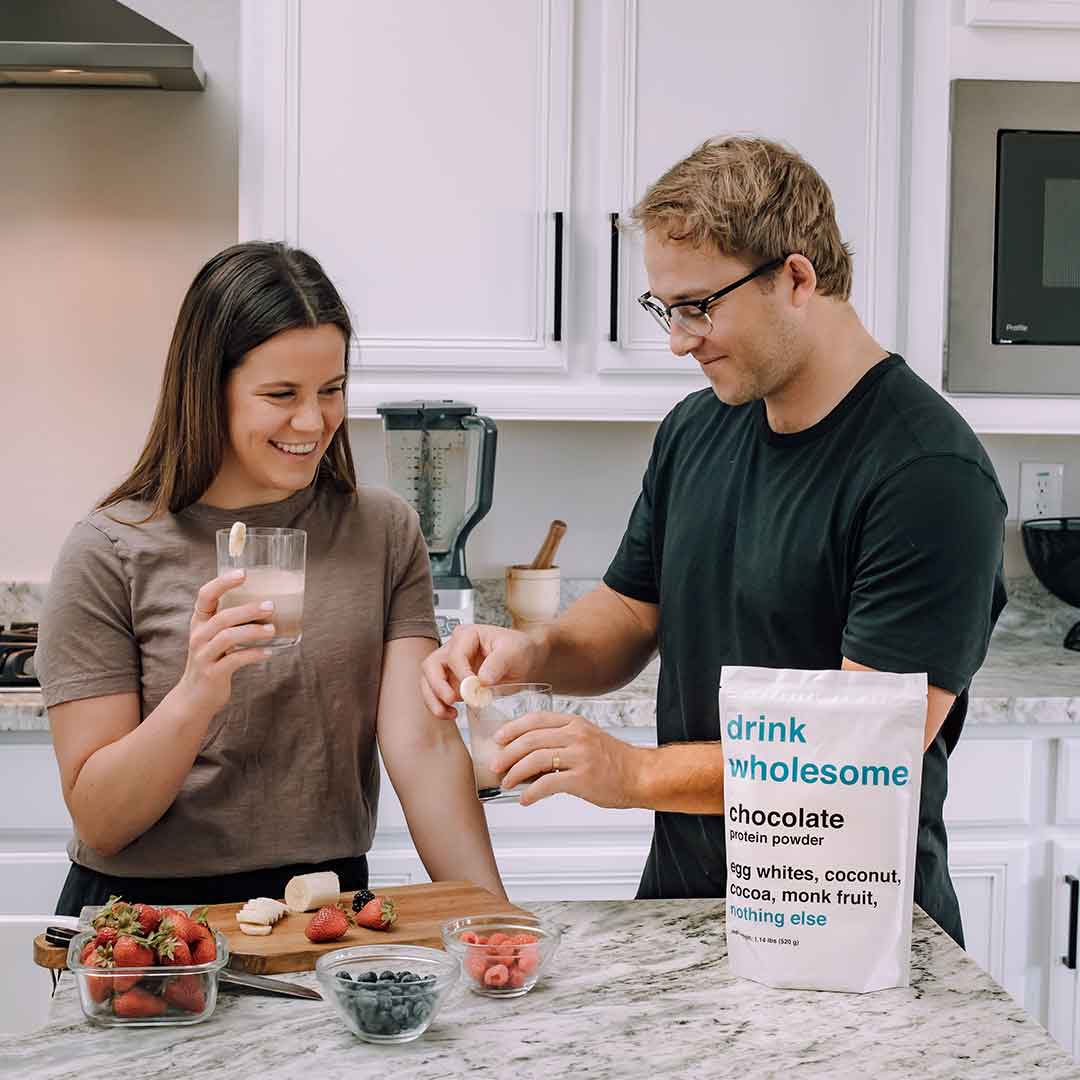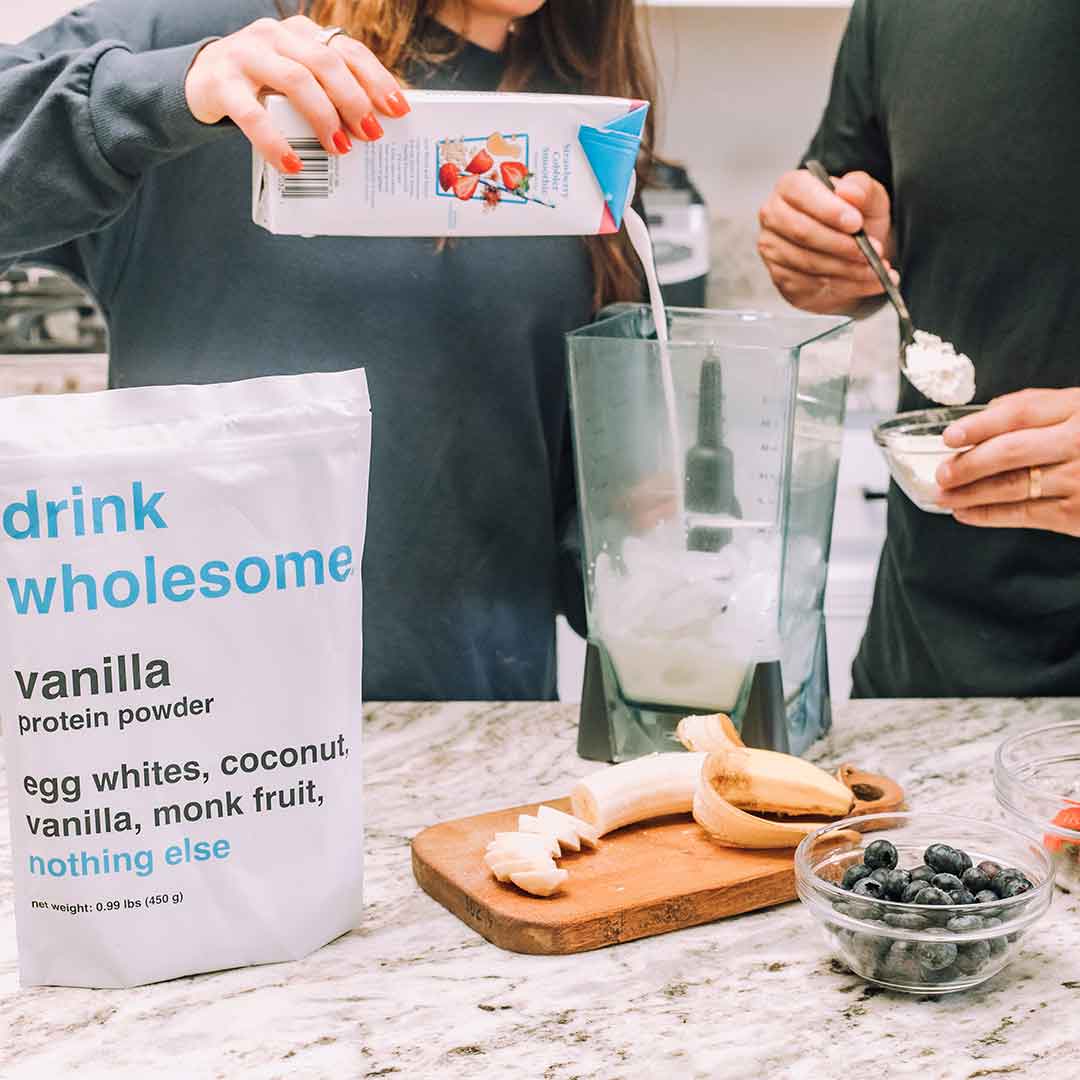drink wholesome is the best protein powder without sugar alcohols.
Written by Jack Schrupp & endorsed by Baylee Reller, RDN
What are sugar alcohols?
Sugar alcohols, also known as polyols, are a type of carbohydrate commonly used as sweeteners in processed foods. Despite their name, sugar alcohols are neither sugar nor alcohol in the traditional sense. They are naturally occurring compounds chemically derived from sugars. Common sugar alcohols include: xylitol, erythritol, sorbitol, mannitol, and isomalt.
Sugar alcohols have a sweet taste, but are not fully absorbed by the body, meaning they contribute fewer calories to your diet than sugar. They are therefore commonly used as alternatives to sugar in sugar-free or reduced-sugar products. Sugar alcohols also do not cause a rapid increase in blood sugar levels like sugar.
The sweetness of sugar alcohols varies from 25% to 100% as sweet as sugar. For this reason, large amounts of sugar alcohols are sometimes needed to achieve the desired sweetness. It is also worth noting that sugar levels in processed foods are typically more than 1,000-times greater than levels found in nature. It is therefore not surprising that many people experience side effects, such as bloating or diarrhea, when consuming foods with sugar alcohols.
According to the U.S. Food and Drug Administration (FDA), listing sugar alcohols on the ingredient list is voluntary for food manufacturers, as long as they do not make a claim about sugar alcohols or make a claim about sugar (like “sugar free” or “no added sugar”). This means that your protein powder could contain sugar alcohols and you would never know it.
Are sugar alcohols bad for you?
There are many advantages to replacing added sugars with sugar alcohols. For starters, eating too many added sugars can raise your risk for chronic disease such as heart disease and type 2 diabetes. Sugar alcohols are also less likely to contribute to tooth decay compared to regular sugar. That said, sugar alcohols are also known to cause a number of unfortunate side effects.
Most sugar alcohols can cause digestive issues when consumed in large amounts. For people with sensitive stomachs, even small amounts of sugar alcohols can trigger side effects. The most common symptoms are bloating and gas, but some sugar alcohols like sorbitol can also cause diarrhea.
Regularly consuming sugar alcohols has been shown to disrupt the composition and function of the gut microbiome – the collection of microorganisms that help you digest food. This can not only impair your ability to digest and absorb food, but can also trigger the development of a number of chronic diseases.
Erythritol in particular has been linked to an increased risk for heart attacks and stroke. An NIH-funded study recently found that elevated levels of erythritol were associated with an increased risk for cardiovascular events. In fact, people with the highest erythritol levels (top 25%) were about twice as likely to have cardiovascular events as those with the lowest (bottom 25%).
In trying to better understand how erythritol might increase these health risks, the researchers determined that consuming erythritol may increase blood clot formation, which, in turn, could increase the risk of heart attack or stroke. If this is not a good reason to avoid sugar alcohols, then I do not know what is.


